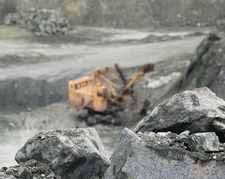 A group of military families recently filed a class action lawsuit against several residential entities associated with on-base housing for dependants at Marine Corps Air Station (MCAS) in Beaufort, South Carolina. Attorneys for the eleven named families in the lawsuit claim that the plaintiffs and potentially tens of thousands of others suffered exposure to several toxic and potentially carcinogenic substances, including asbestos, while living in military housing.
A group of military families recently filed a class action lawsuit against several residential entities associated with on-base housing for dependants at Marine Corps Air Station (MCAS) in Beaufort, South Carolina. Attorneys for the eleven named families in the lawsuit claim that the plaintiffs and potentially tens of thousands of others suffered exposure to several toxic and potentially carcinogenic substances, including asbestos, while living in military housing.
The lawsuit, filed in the Court of Common Pleas Fourteenth Judicial Circuit for Beaufort County, claims that the defendants knew for decades about the seriously hazardous conditions many families lived in while acting as property and real estate managers for the military. The claim even goes so far as to state that the defendants “knowingly and intentionally” placed victims in harm’s way by refusing to alert residents to the dangers they faced.
The named plaintiffs allege that the presence of toxic substances, including cancer-causing pesticides, lead paint, and asbestos, was the direct and proximate cause of their cancer diagnosis and other serious health conditions. Specifically, the complaint alleges exposure to toxic pesticides from storage tanks built from the 1950s to the 1970s that were left near tennant housing. Those allegations first came to light many months ago when one of the lead plaintiffs posted a video on Youtube.
 Asbestos & Mesothelioma Law Blog
Asbestos & Mesothelioma Law Blog




